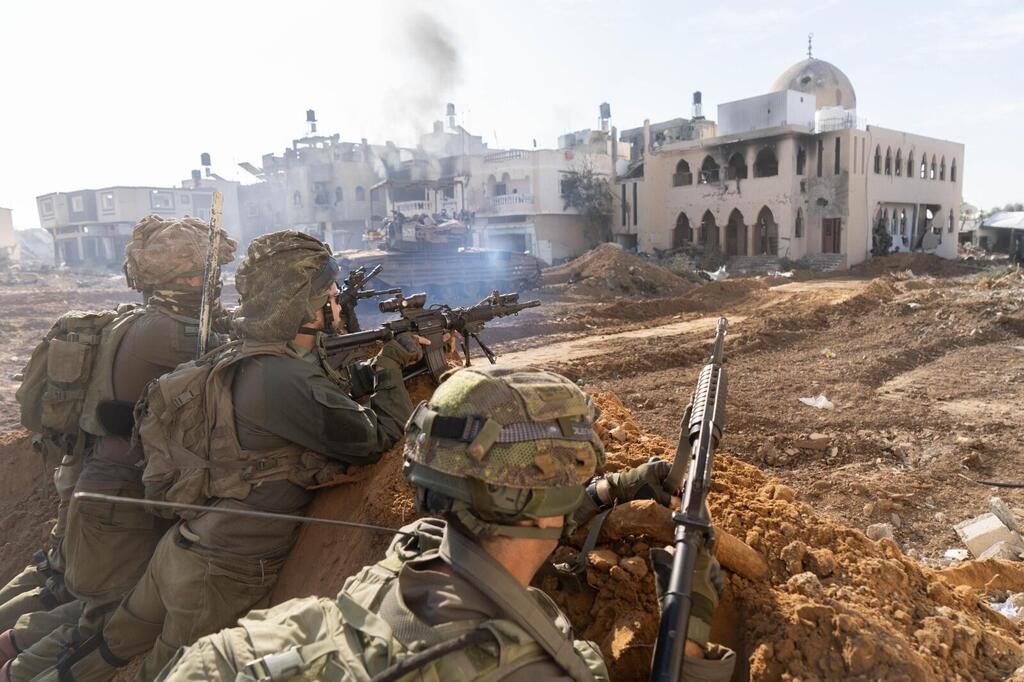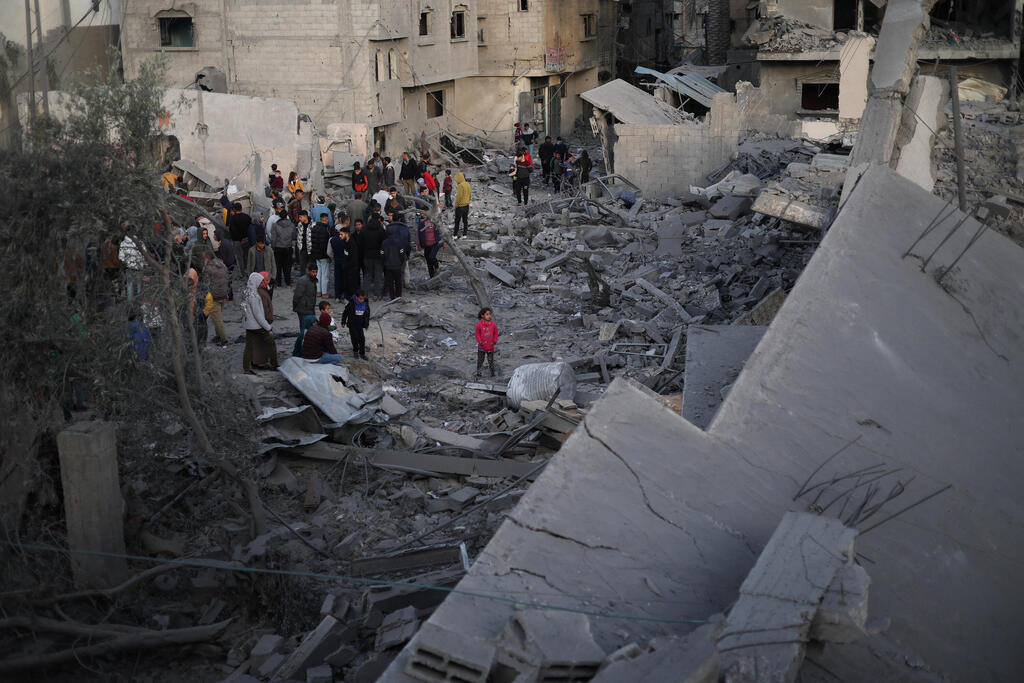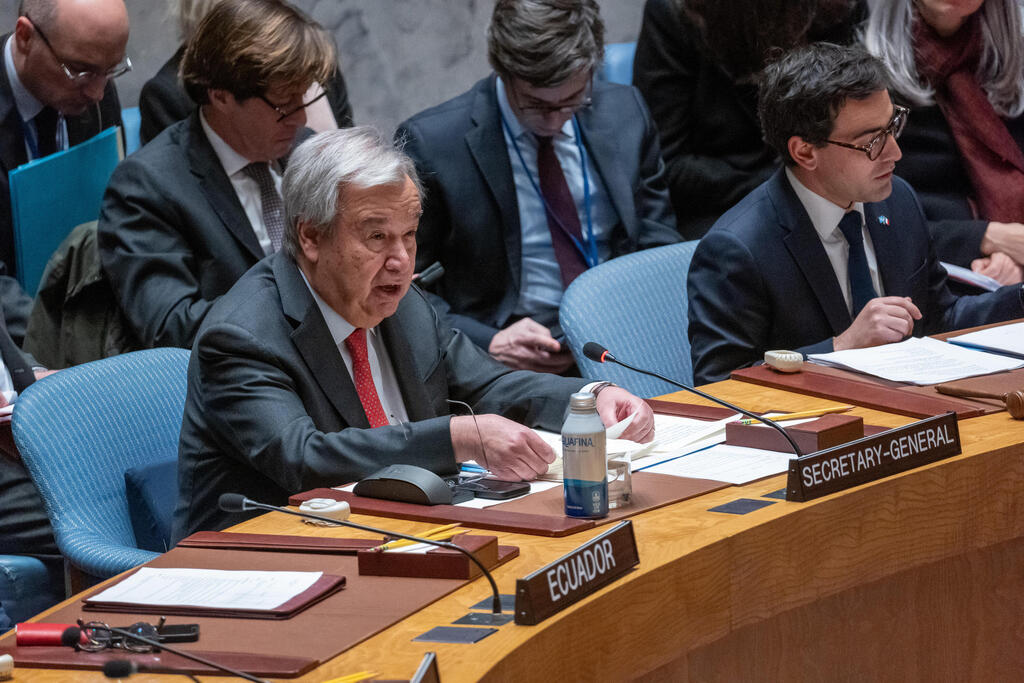Getting your Trinity Audio player ready...
Israel has the capability to militarily defeat Hamas and is currently making significant strides against the terrorist organization. Should Israel maintain its military momentum, Hamas' forces could be significantly diminished, potentially reduced to a minor militia.
Read more:
A deal for the hostages is unlikely without the continuation of substantial military pressure on Hamas. Overcoming Hamas is crucial not only for the immediate goal of retrieving all hostages but also for the broader objectives of regional security and the prospects for future peace.
The sacrifices of soldiers in Khan Younis and across Gaza represent not a quest for vengeance but a critical military operation aimed at achieving its foundational objectives. This campaign holds the potential to pave the way for a brighter future for both Israelis and Palestinians.
These statements are deemed provocative and unacceptable in both Western and Eastern contexts, as well as globally. However, they are accurate both factually and strategically.
The operation conducted by security forces in Gaza in the early hours of Monday underscores this point. The successful rescue of Fernando Marman and Luis Har represents a remarkable tactical achievement, characterized by meticulous planning and execution. This operation was supported by precise, high-quality intelligence from the Shin Bet and the IDF's Intelligence Directorate, showcasing the IDF's capabilities.
5 View gallery


IDF has deepened operations in Khan Younis in recent weeks
(Photo: IDF Spokesperson's Unit)
For a time, there was a perception that the IDF's operations in Gaza had become complacent, with discussions in Israel and internationally suggesting that further actions in Gaza were unnecessary. The focus for many shifted toward negotiating a hostage release deal. However, this perspective did not influence the War Cabinet or give Hamas any strategic advantage.
Suddenly, Hamas changed its tune, which it had maintained for weeks of refusing to discuss releasing further hostages, to proposing the release of dozens of Israelis before the IDF concluded its military operations. This shift indicates that Hamas is conceding. Such a concession would not have been possible without the IDF's offensive in Khan Younis.
Military pressure is the driving force behind the change in Hamas' position. This pressure has heavy costs. On Sunday, two soldiers fell in battle - Sergeant First Class Adi Eldor, 21, from Haifa and Sergeant First Class (res.) Alon Kleinman, 21, from Tel Aviv. Without people like them, no one would have been released from Rafah. And no hostage deal was on the table.
I spoke with two foreign reporters who arrived in Israel on Sunday afternoon, well before the IDF and the Shin Bet stormed the apartment in Rafah, supported by ground and air cover.
One was American and the other from Northern Europe; both gave me a skeptical look when I mentioned that, by examining the map, the data, the frequency of rocket launches, the count of terrorists eliminated and the tally of our soldiers wounded in recent weeks, Israel's military operation appears to be progressing successfully.
Globally, the war in Gaza is viewed not just as a humanitarian catastrophe but also as a military debacle, often based on anonymous intelligence reports from the U.S. Yet, when pressed for an alternative, critics often fall silent.
The IDF's military achievements are undeniable. Both the Americans and the entire region will soon recognize the IDF's accomplishments in Gaza. The evidence is clear and speaks for itself.
The pivotal question remains: Can Israel leverage its military successes to forge a new reality? This envisioned scenario is one where humanitarian aid does not end up with Hamas, and the terror group is prevented from rising anew and rebuilding its strength. If the political leadership fails to act decisively and courageously, taking necessary political risks, it's possible to win the battle yet lose the war.
5 View gallery


Rafah footage after IDF operation to rescue hostages
(Photo: REUTERS/Ibraheem Abu Mustafa)
Unfortunately, the IDF has indicated that it is not feasible to rescue most hostages through military efforts alone. The paramount objective of this war is to ensure their safe return. Presently, there are proposals for a hostage exchange and the potential for a regional normalization deal on the table, both of which have been achieved through painstaking efforts and at a great cost.
It is imperative to seize these opportunities to effectuate deep and positive change. While the concept of "total victory" may be ambiguous, this may achieve substantial progress. And Hamas must be destroyed.






